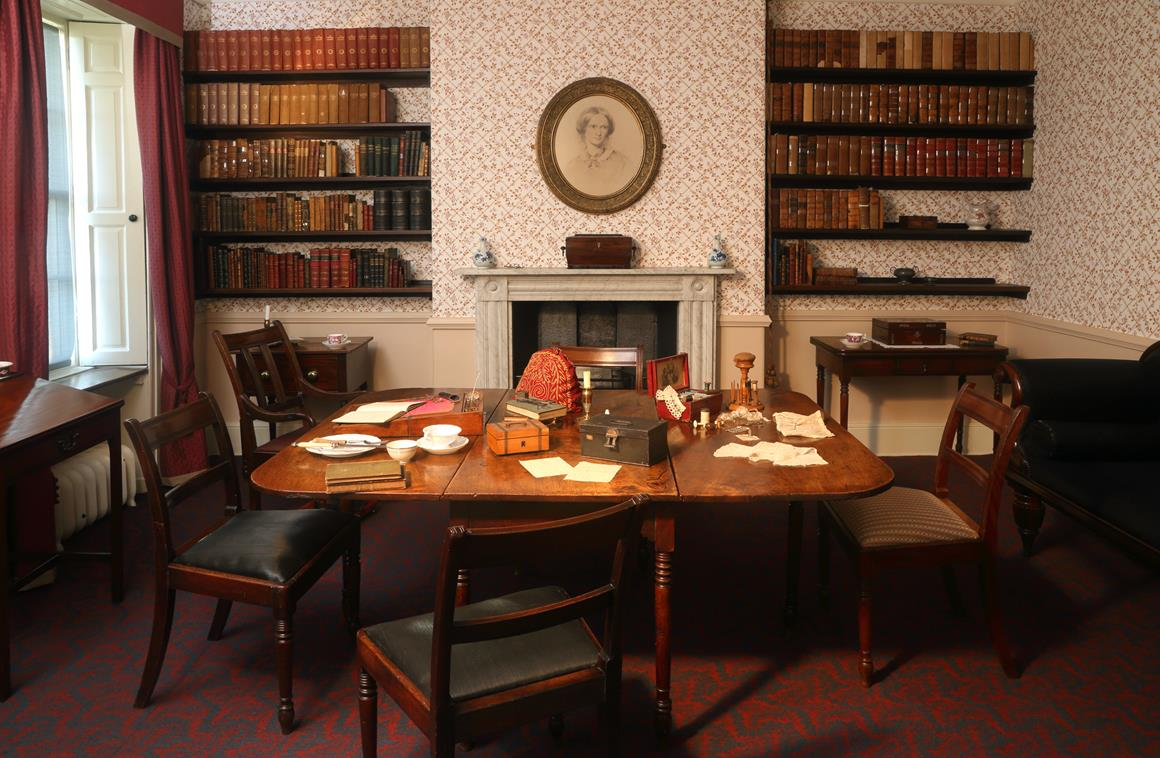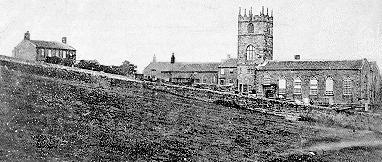On this day in History
Charlotte Bronte born on Apr 21, 1816
200 years ago
why-charlotte-bronte-still-speaks-to-us-200-years-after-her-birth
The Brontës are remarkable for being three successful authors from one family. But, more remarkably, Charlotte, Emily and Anne were all women who were successful at a time when women didn't have much freedom, either at home or in society. I have always loved their novels which are full of strong female characters who challenge the social conventions of their time. And I can still see their impact today through writers, musicians and film-makers who are continually inspired by them.
But were they really feminist pioneers in their own lifetimes? And what did they really do for women? Read more: bbc
 Celebrations for Charlotte Brontë's bicentenary will be taking place across the world, but here's our guide to what's happening in Haworth ...
Celebrations for Charlotte Brontë's bicentenary will be taking place across the world, but here's our guide to what's happening in Haworth ...
The Old School Room, Haworth, 11am - 4pm
Charlotte's Birthday Party
We're throwing a party for Charlotte and everyone is invited! There will be tea, birthday cake and a few surprises, so please come along and help us celebrate.
We'll be joined by pupils from Haworth Primary School, who will perform early scenes from Jane Eyre and during the afternoon we'll have music from local performers Charlotte Jones and Eddie Lawler, also known as the Bard of Saltaire.
 Members of Otley Cycling Club will be riding between Thornton and Haworth with a floral tribute, which will be laid in the Parsonage Garden at approximately 1pm. Rev Peter Mayo-Smith will lead the proceedings and there will be a reading by our 2016 creative partner Tracy Chevalier.
Members of Otley Cycling Club will be riding between Thornton and Haworth with a floral tribute, which will be laid in the Parsonage Garden at approximately 1pm. Rev Peter Mayo-Smith will lead the proceedings and there will be a reading by our 2016 creative partner Tracy Chevalier.
Artist Julia Ogden will help visitors make a birthday card for Charlotte and there will also be the opportunity to learn more about the Bronte Society.
At 2.45pm Great British Bake Off contestant Sandy Docherty will present a cake baked especially for the occasion and at 4pm a rose bush (kindly donated by David Austin Roses) will be planted in Charlotte's honour.
Charlotte's Birthday Party
We're throwing a party for Charlotte and everyone is invited! There will be tea, birthday cake and a few surprises, so please come along and help us celebrate.
We'll be joined by pupils from Haworth Primary School, who will perform early scenes from Jane Eyre and during the afternoon we'll have music from local performers Charlotte Jones and Eddie Lawler, also known as the Bard of Saltaire.
 Members of Otley Cycling Club will be riding between Thornton and Haworth with a floral tribute, which will be laid in the Parsonage Garden at approximately 1pm. Rev Peter Mayo-Smith will lead the proceedings and there will be a reading by our 2016 creative partner Tracy Chevalier.
Members of Otley Cycling Club will be riding between Thornton and Haworth with a floral tribute, which will be laid in the Parsonage Garden at approximately 1pm. Rev Peter Mayo-Smith will lead the proceedings and there will be a reading by our 2016 creative partner Tracy Chevalier.Artist Julia Ogden will help visitors make a birthday card for Charlotte and there will also be the opportunity to learn more about the Bronte Society.
At 2.45pm Great British Bake Off contestant Sandy Docherty will present a cake baked especially for the occasion and at 4pm a rose bush (kindly donated by David Austin Roses) will be planted in Charlotte's honour.
 Brontë Parsonage Museum, 10am - 8pm Celebrating Charlotte
Brontë Parsonage Museum, 10am - 8pm Celebrating CharlotteJoin us for what is sure to be a memorable day at the Museum! BBC Radio Leeds will be broadcasting live from the Parsonage between 9am and 12pm so please come along and join in the fun.
Visitors to the Museum will be invited to hear talks on different aspects of Charlotte Brontë's life, including her experience of school at Cowan Bridge, getting published and her time in Brussels. Talks will take place at 10.30am and 2pm. Tracy Chevalier will give a talk about her exhibition, Charlotte Great and Small at 6.30pm.
There will also be the opportunity to meet with members of our Collections team and view some of Charlotte's possessions, letters and manuscripts in the library. These 'Treasures' sessions will take place at 12pm, 2pm and 4.30pm.
The Museum will be open until 8pm and visitors arriving after 6pm will be invited to join us for a celebratory drink.
All activities are free with admission to the Museum, but as space is limited, places to the talks and Treasures sessions will be allocated on a first-come, first-served basis. charlottes-birthday-party
Happy 200th Birthday Charlotte Bronte!
This beautiful cake, which will be delivered by conference organiser Eleanor Houghton later today, will be cut and served to delegates at our conference in Charlotte Bronte's honour on the 13th and 14th of May.
http://www.chawtonhouse.org
This beautiful cake, which will be delivered by conference organiser Eleanor Houghton later today, will be cut and served to delegates at our conference in Charlotte Bronte's honour on the 13th and 14th of May.
http://www.chawtonhouse.org






Happy birthday, Charlotte!
BeantwoordenVerwijderen